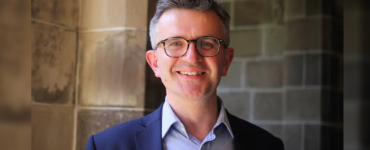COVID-19 has brought the frailty and vulnerability of the body into sharp relief. Some have suggested that in the wake of COVID-19 we should consider practices such as virtual eucharists. I would like to suggest we resist that, and think a bit more about what bodily absence might symbolise.
COVID-19 provides occasion to think about the bodily absence of Christ in productive ways. There’s something about the absence of the eucharist which gives way to a realisation that it is always an act of hope, of anticipation. The Eucharist, however, can be something we take for granted, something we don’t miss until it is gone. The absence of the eucharist is also indicative of the absence of an ability to meet together in, as, and through the body of Christ. That which binds us together as one body is taken away for a time.
Søren Kierkegaard tells a story of a lover watching the beloved disappear on a ship over the horizon. It is in that moment of absence that love is somehow brought to attention. This is more than not knowing what you have until it’s gone, it is a matter of not knowing what we don’t have in the first place. We don’t have Christ, his body has ascended and we await his coming. The eucharist is an enactment of this hope.

Scott A. Kirkland teaches and researches at the intersection of political theology, philosophy, and theological ethics. He is also the Research Coordinator at Trinity College Theological School.






Agreed! Let’s resist the rising of a gnostic ghost to displace the risen body of Christ.